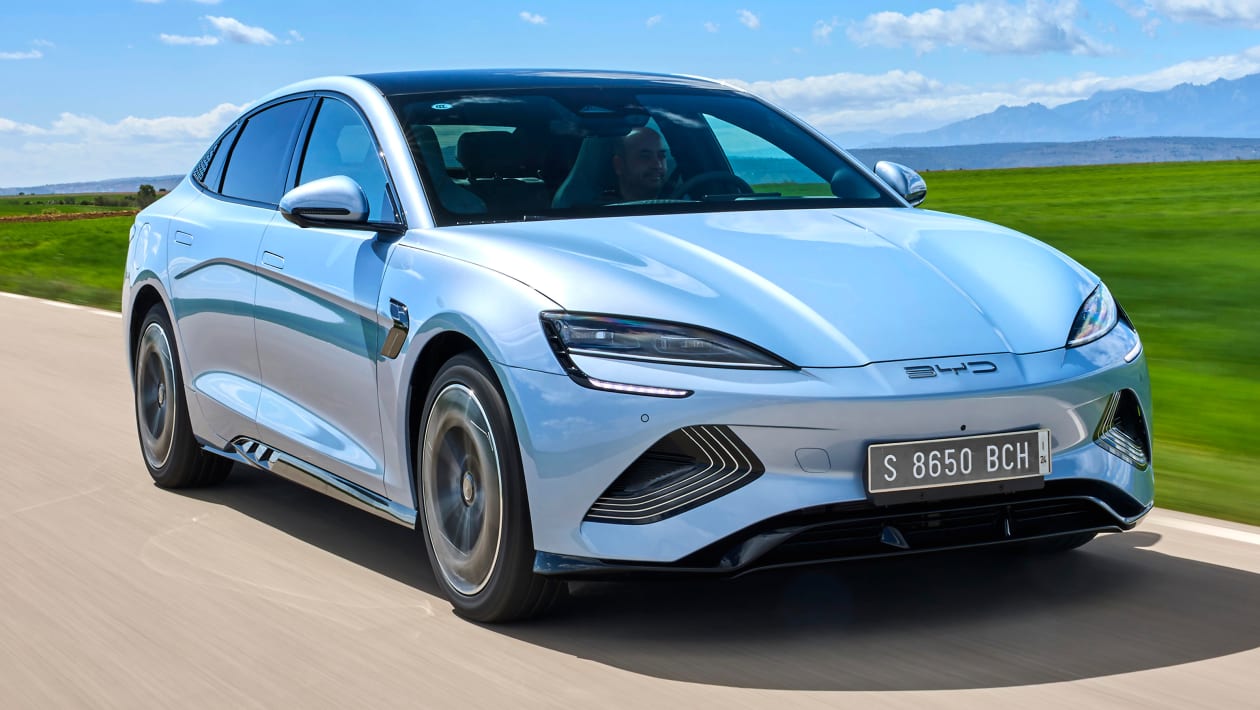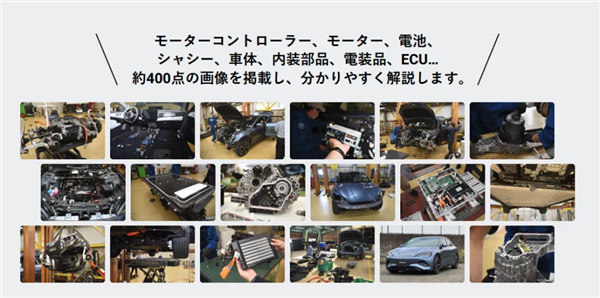Chinese electric car maker BYD is outpacing Tesla
Chinese electric car maker BYD is outpacing Tesla.
![]()
Unique food makes Thai people proud: Dubbed "Dawn flower", tourists...
Concerned about Japan releasing radioactive water into the sea, Koreans rush to hoard salt
The "anatomy" of Chinese electric cars, why the Japanese consider this a "future world leader", surpassing even Tesla
Paradox: Toyota from the position of seniors, veterans in the auto industry had to 'steal' to learn Tesla how to produce, admitting 'it was a shock'
The 72-year-old woman has a youthful appearance like 20 years old: The secret to taking care of her beauty and maintaining her health is surprisingly simple
Which car company can dominate the world EV market? Many people bet on China's BYD.

Amid the protracted US-China trade war, many US companies are trying to diversify their supply chains away from the mainland. At the same time, consumers are turning away from U.S. fossil fuel-powered vehicles, in part because government-subsidized EV prices are so good. Last year, General Motors' sales in China fell 20% while Ford fell 33.5%.
In the race to limit carbon emissions, the authorities of countries offer a lot of incentives to encourage people to buy electric cars, and turn this into the next battleground for car manufacturers. The BYD results show that for themselves.
Despite the pandemic, BYD recorded a 96% increase in operating revenue last year while net income hit 16.6 billion yuan ($2.3 billion). The growth rate hit 446%, according to SCMP.
Last year, BYD dominated China with a 27% market share. The closest competitor, Tesla, sold only 439,770 electric vehicles, or less than 10%. Globally, BYD has also overtaken Tesla as the best-selling electric vehicle manufacturer with more than 1.8 million vehicles. Tesla sold only 1.3 million last year.
How did BYD, founded in 1995 as a rechargeable battery factory, become the world's leading manufacturer of electric vehicles? The answer lies in the harmonious combination of China's industrial policy with the sharp and versatile thinking of the BYD leadership team.
The traditional gasoline car market has long been dominated by European and American companies. Competing with such giants will be extremely difficult, so China turns to look for opportunities from new gasoline cars. Many public policies in the late 2000s were created to encourage market development.
First, the city government of Shenzhen - BYD's home town - started testing electric buses and taxis in 2010. This created initial demand for electric vehicles, while also making it easier for the city to manage. Manage charging operations based on existing infrastructure.
BYD, which later manufactures electric buses to sell to Shenzhen and other regions, benefits accordingly. People's awareness is increasing, especially when more and more electric buses and taxis appear on the street. Suzhou later also followed Shenzhen.
In order to stimulate demand for electric passenger cars in the context of charging infrastructure and limited driving range, the mainland continues to subsidize people to buy cars. Last week, tax incentives continued to be extended until 2027.
In addition, the government also cooperates with private companies to build charging stations across the country. Currently, China has 5.2 million charging stations, of which 1.8 million are public and 3.4 million are private.

BYD grows with China's EV market. In 2011, when the company's first F3 models still hadn't passed the basic tests, Elon Musk burst out laughing in an interview when he mentioned BYD. Then until last year,
The company's all-electric Atto 3 SUV has received a 5-star safety rating from the European New Car Assessment Program.
With a strategy of vertical integration, which reduces dependence on external suppliers, BYD quickly develops attractive electric vehicle models at affordable prices, suitable for a variety of markets.
“The cost competition among electric vehicle manufacturers is fierce. If you can't reduce costs, you won't have an advantage. BYD's control over its own supply chain is unmatched," said Yale Zhang, managing director of Shanghai-based consultancy Automotive Foresight.
Today, BYD vehicles also use “blade batteries,” a proprietary lithium iron phosphate battery that is said to be safer, cheaper and more durable than conventional lithium-ion batteries. BYD also has the ability to manufacture its own EV chips, thereby freely controlling input costs, materials, and the quality of key parts.
“The advantage of BYD is very clear. High-performance batteries have an edge over competitors,” said Jeff Cai, JD Power China's chief adviser, citing several Chinese electric carmakers that have surpassed Tesla in technology. “In addition, BYD has many trendy products and designs that resonate with Chinese customers.”
China is a key market, but BYD is expanding its operations to more than 15 overseas markets, including Norway, Sweden, Germany, Denmark, France, Israel, Thailand and India. For the European market, BYD plans to introduce the Dolphin range later this year with a price tag of $33,000. It also plans to partner with Saga, one of the largest dealers in Latin America, to operate at least 100 stores in Brazil by the end of the year.
To support international vehicle sales, BYD is building an EV factory in Thailand and is expected to start production next year. The company also plans to build factories in Vietnam and Brazil.
To date, BYD has produced dozens of models. The Dynasty series - named after China's reigning kings - primarily targets the segment of middle-class households. The Ocean line - simpler - mainly appeals to young users. The secret to BYD's success lies in its unwavering belief that one day batteries will be the dominant power source, even replacing fossil fuels for cars.
Thus, fast-forwarding decades, BYD is now the "laughter" in Elon Musk's story. The billionaire finally has to admit that today's BYD cars are highly competitive and very formidable.
"We have a lot of respect for car companies in China," Musk said. “They are highly competitive, hard working and smart. So I have a lot of respect for these car companies.”
By: SCMP
Operate and exploit advertising by iCOMM Vietnam Media and Technology Joint Stock Company.
116 Thai Ha, Trung Liet Ward, Dong Da District, Hanoi.
Email: lethisam@lustystore.com
Editor in chief: Tran Vo
Tel: (+84) 903076053/7 Fax: (+84) 903030935